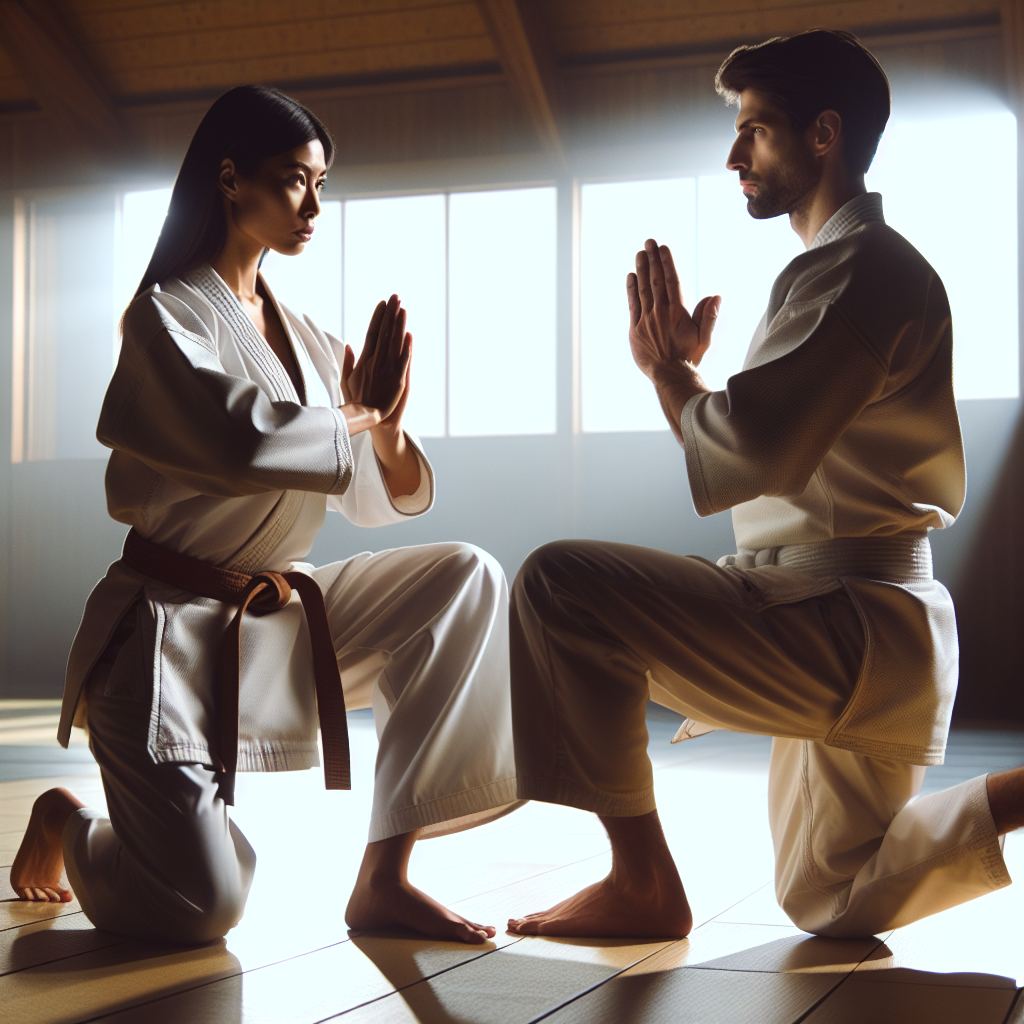Karate, a traditional martial art form originating from Okinawa, Japan, encompasses a deep-rooted history that resonates with both discipline and self-defense techniques. Join us on an insightful journey as we delve into the enigmatic world of Karate and uncover the essence of this revered martial art.

The Origins of Karate
Karate, which translates to 'empty hand', was developed centuries ago by Okinawan martial artists as a means of unarmed combat. Over time, it evolved into a refined discipline focusing on self-control, respect, and physical endurance. This ancient art form embodies a harmonious balance of physical prowess and mental fortitude.
The Basic Principles of Karate
At the core of Karate lie essential principles that guide practitioners on their journey towards mastery. These principles emphasize the importance of proper form, balance, and coordination. By adhering to these fundamental tenets, students cultivate not only their physical abilities but also their character.
The Art of Kata
Central to Karate practice is the art of Kata – a choreographed sequence of movements that simulate combat scenarios. Through the continuous practice of Kata, students refine their techniques, enhance their focus, and develop their muscle memory. Each Kata embodies a unique narrative, encompassing attacks, blocks, and counterattacks that showcase the fluidity and precision of Karate movements.
Techniques and Forms
Karate encompasses a diverse range of striking, blocking, and grappling techniques that empower practitioners in both offensive and defensive situations. From powerful punches and dynamic kicks to swift evasive maneuvers, each technique serves a specific purpose within the context of combat. By mastering these techniques, students learn to harness their inner strength and unleash their full potential.
The Path to Mastery
Embarking on the journey of Karate is akin to embarking on a quest for self-discovery and personal growth. As students progress through the ranks, they encounter challenges that test their resilience, perseverance, and dedication. The pursuit of mastery in Karate is not merely a physical endeavor but a holistic transformation that encompasses mind, body, and spirit.
Conclusion
In conclusion, Karate transcends its role as a martial art and embodies a way of life characterized by discipline, honor, and continuous improvement. By embracing the principles and techniques of Karate, individuals embark on a profound journey of self-realization and empowerment. Are you ready to unlock the secrets of Karate and embark on your own path towards mastery?
Join us on this transformative journey into the unknown world of Karate, where tradition meets innovation, and inner strength is forged through dedication and practice.
Unleash your potential and discover the art of Karate – a timeless practice that transcends boundaries and empowers individuals to become the best versions of themselves.


Comments